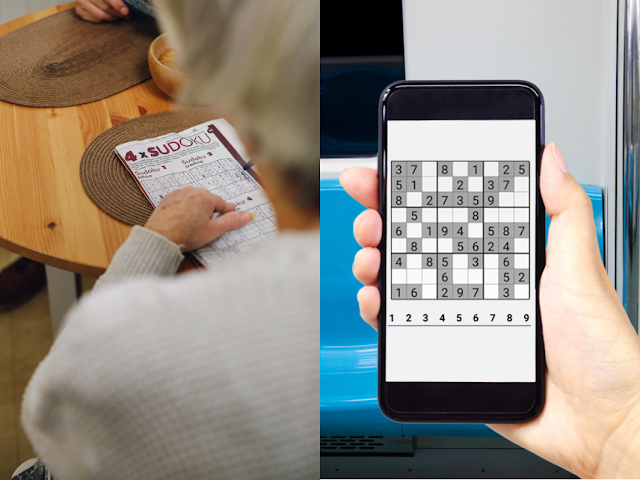Exploring the Benefits of Classic Sudoku! The Application Value of Sudoku in Learning and Teaching, Enhancing Problem-solving and Logical Thinking Abilities
Article language
Sudoku is a classic number puzzle game, which not only brings us entertainment and challenges, but also shows its unique value in the field of education.
In the field of learning and teaching, Sudoku has important value, it can cultivate students' mathematical thinking, logical thinking and problem-solving ability. Through the interactive and challenging game, you can exercise your brain, expand your thinking, and improve your understanding of numbers and logic!
This article will explore the application value of Sudoku in learning and teaching. I will introduce the rules and gameplay of Sudoku game, and discuss how it can promote the development of students' mathematical thinking, logical thinking and problem-solving ability.
Basic Rules of Sudoku
Sudoku is composed of a 9x9 grid board, which is divided into 9 small 3x3 square areas. The player's goal is to fill in each blank square with numbers from 1 to 9, so that each number is in each row, Occurs only once in each column and each small square area.
In simple terms, there are three basic rules of Sudoku:
- The numbers in the small nine-square grid are not repeated
- The numbers in the horizontal row of the big Jiugong grid are not repeated
- The vertical numbers in the big Jiugong grid are not repeated

When all the blank squares are filled and the position of each number complies with the rules of the Sudoku game, the Sudoku game is completed as a challenge .
If beginners want to understand the basic rules and techniques of Sudoku, you can refer to another article with detailed explanations and diagrams, so that you can understand the operation of the game more clearly!
Three important values of Sudoku in the field of education
Dr. Howard Gardner, a psychologist at Harvard University, pointed out that human beings have at least seven intelligence centers, among which mathematical intelligence involves logic and abstract thinking, and can be trained after acquired training. As long as you are willing to use your brain and play a "Sudoku" every day, I believe it will benefit a lot.
1. Cultivate the ability of mathematical thinking
In detail, it is divided into four methods:
- Numerical reasoning: At the beginning of the Sudoku game, it is necessary to infer the numbers that should be filled in other grids based on the positions and constraints of known numbers. Instead, reason numerically and analyze possible solutions, a step that develops logical thinking and reasoning skills.
- Mathematical patterns and rules: There are various mathematical patterns and rules in the Sudoku game, such as numbers that cannot be reused in a specific area, numbers in each row, column, and small square must be unique, etc. Through the process of solving problems, you can gradually discover and apply these patterns and laws, and further understand mathematical concepts.
- Mathematical strategies: Sudoku games require the use of various strategies to solve puzzles, such as reasoning with the numbers already filled in, starting from the least likely grid, and so on. It can prompt us to think about different problem-solving methods and strategies, and cultivate problem-solving ability.
- Analysis and induction: Through the Sudoku game, you can learn to analyze problems, consider solutions from multiple angles, and summarize general problem-solving methods. This helps develop the ability to think abstractly and think holistically.
2. Develop problem-solving skills
In detail, there are three ways:
- Problem decomposition: Sudoku game is a big problem, which needs to be broken down into smaller sub-problems, that is, the filling of each grid. When solving the number filling problem of each grid step by step. Such decomposing thinking can be applied to other problems, breaking down complex problems into more manageable parts .
- Problem analysis: In the Sudoku game, it is necessary to analyze the numbers and constraints that have been provided, and infer the numbers of other grids based on this information. So as to find the key points of the problem and draw a solution from it .
- Solving strategies: Sudoku games need to use different solving strategies, such as unique candidate number method, exclusion method, diagonal reasoning, etc., to find the only solution, and cultivate flexible thinking and diversified solution thinking .
3. Cultivate the ability of logical thinking
In detail, there are three ways:
- Reasoning and deduction ability: Sudoku games need to infer the numbers that should be filled in other grids based on known numbers and constraints. It is necessary to obtain the correct answer through analysis and reasoning, so as to cultivate reasoning ability and logical thinking.
- Analysis and elimination method: Sudoku game requires multiple analysis and elimination to narrow down the possible numbers to the minimum range and find the only solution. Thereby developing analytical skills and learning to choose and exclude from multiple options.
- Long-term thinking and overall planning: Sudoku games need to consider the balance and consistency of the entire board while filling in the numbers. Cultivate the habit of long-term thinking, learn to formulate an overall plan, and maintain logical consistency in the process.
Learning through games
Prompt function
The game offers a "Hint" feature, which is very useful for beginners. When the user encounters difficulties or needs some help, just click the hint button, and the game will provide several digital guides so that the user can continue. This prompt function not only helps to learn and understand the rules of the game, but also guides the user to think about the process of solving the problem, from which he can learn logical reasoning and problem-solving methods.
Problem Solving Error Reminder
When the user makes a mistake when filling in the numbers, the game will immediately remind the user of the error in the position so that they can correct it. This feature helps users realize their mistakes and learn to check and verify the accuracy of answers. Through such a reminder and correction process, users can train their observation, meticulousness and carefulness, thereby improving their logical thinking ability.
in conclusion
Sudoku game is not just a process of filling numbers, it contains profound educational value. In learning and teaching, the Sudoku game has a unique ability to develop mathematical thinking, logical thinking and problem-solving skills. Through the interactive and challenging game, you can exercise your brain, expand your thinking, and improve your understanding of numbers and logic!
If you want to train your brain by solving puzzles through games, Sudoku is definitely a very suitable choice. It's convenient, fun, and endlessly challenging and intellectually exercising. Come and try the fun of solving puzzles!

.png)


.png)
.png)





Comments
Post a Comment